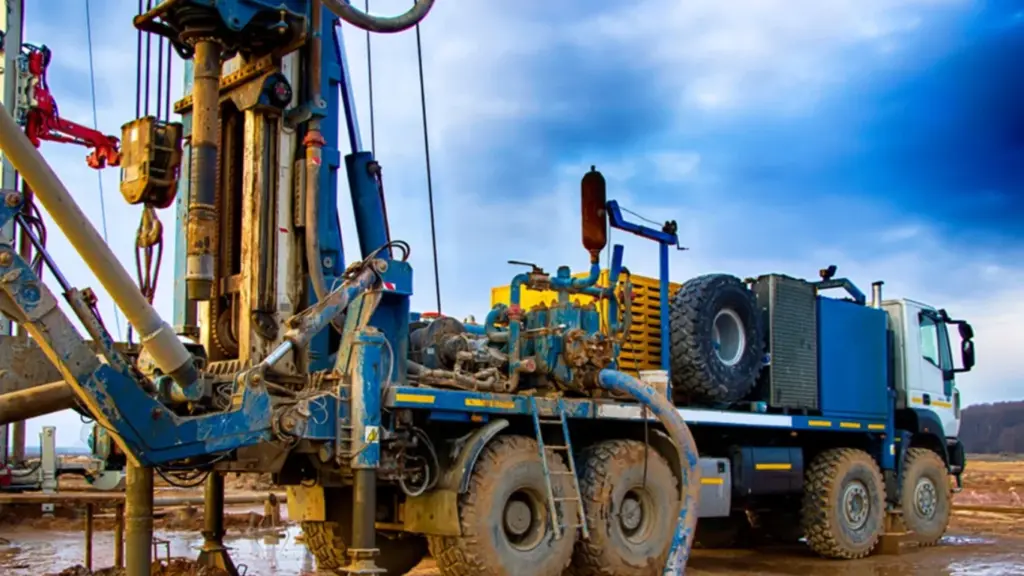The Silent Role of Shallow Wells in Sustainable Living

Shallow wells might not get as much attention as other water sources, but they play a crucial role in sustainable living. These wells are simple, cost-effective, and can provide reliable access to water for homes, farms, and gardens.
Unlike deeper wells, they’re easier to maintain and less resource-draining to install, making them an ideal choice for off-grid living or eco-conscious households. But the real magic of shallow wells lies in their ability to work with the natural water cycle, reducing the need for excessive pumping and minimizing energy use.
When used properly, they can be a key part of reducing your environmental footprint and living more sustainably.
How do shallow wells contribute to sustainable water management?
Shallow wells play a significant role in sustainable water management by offering an efficient, localized source of water that reduces the reliance on larger, more energy-intensive water systems. Here’s how they contribute:
- Localized Water Source: Shallow wells use plentiful groundwater near the surface, decreasing infrastructure needs. This localized strategy promotes self-sufficiency and reduces energy costs by letting households and communities use water from their environment.
- Lower Environmental Impact: Shallow wells use natural groundwater reserves, reducing the need for large-scale water extraction, which can deplete freshwater resources. Shallow wells conserve water by taking water from adjacent aquifers.
- Reduced Infrastructure and Maintenance Costs: Shallow wells are cheaper to build and maintain than deep wells or municipal water supplies. This lessens financial strain on communities, especially rural or developing ones, making water management cheaper.
- Support for Agriculture: Small-scale farming uses shallow wells to irrigate crops. These wells provide efficient irrigation without straining natural waterways, promoting sustainable agriculture and more reliable water for local food production.
Shallow wells are a sustainable, environmentally friendly way to manage water resources and ensure communities have a reliable and cost-effective water supply.
What environmental benefits do shallow wells provide?
Shallow wells offer several environmental benefits contributing to sustainable water use and conservation. Here’s how they positively impact the environment:
- Minimized Energy Consumption: Unlike deep wells requiring significant energy to pump water from greater depths, shallow wells use less power to extract water. This results in lower energy consumption and a smaller carbon footprint, making them a more environmentally friendly option for water extraction.
- Reduced Strain on Ecosystems: Shallow wells relieve river and reservoir pressure by drawing on local groundwater. This prevents surface water over-extraction, which harms aquatic habitats and species. It also preserves ecosystems and water quality.
- Encouraging Groundwater Recharge: Shallow wells support the natural groundwater recharge process, helping maintain a balanced water table. They allow water to replenish groundwater reserves naturally, promoting aquifers’ sustainability and reducing water scarcity risks in the long term.
- Lower Infrastructure Impact: Shallow wells have fewer infrastructure requirements than other water sources. This means there is less environmental disruption during installation, with fewer resources needed for construction and maintenance.
- Supporting Sustainable Agriculture: Shallow wells are often used for irrigation, helping reduce the need for large-scale water diversion. This allows for sustainable agricultural practices, contributing to local water conservation and healthier land management.
Shallow wells contribute to environmental sustainability by reducing energy use, supporting groundwater recharge, and minimizing ecological disruption, making them an eco-friendly option for water management.
How do shallow wells support rural and off-grid communities?
Shallow wells are invaluable for rural and off-grid communities by providing a reliable, cost-effective, and sustainable water source in areas where access to centralized water systems is limited or unavailable. Here’s how they support these communities:
- Self-Sufficiency: Shallow wells allow rural and off-grid households to get water without municipal systems. This independence makes them less vulnerable to natural disasters and infrastructure problems that impede water provision.
- Cost-Effective: A shallow well costs much less to build and operate than pipes and pumps for a larger water distribution system. Shallow wells provide daily water demands without the high costs of distant water supply for rural areas with limited finances.
- Sustainable Water Source: Shallow wells are greener than normal water extraction. They are sustainable for rural water management since they spontaneously refill groundwater. Reducing water imports balances local ecosystems and water tables.
- Improved Agricultural Practices: Many rural communities rely on agriculture for their livelihoods, and shallow wells provide an essential water source for irrigation. This supports sustainable farming practices by ensuring a steady water supply for crops, even in areas with unpredictable rainfall.
- Easy Maintenance and Accessibility: Maintaining shallow wells is simple. They are available to communities without professional services since citizens can manage them with little technological knowledge. The simplicity assures a steady water supply with little effort.
Shallow wells are crucial for rural and off-grid communities. They provide a reliable, affordable, and sustainable water source that supports daily living, agriculture, and overall self-sufficiency.
What factors determine the sustainability of a shallow well?
The sustainability of a shallow well depends on several key factors that affect its ability to provide a consistent and reliable water supply over time. Here are the main factors that determine its sustainability:
- Water Table Depth: Water table depth affects well sustainability. If the water table is too low, the well may dry up during drought or overuse. Sustainable shallow wells need a high and stable water table to deliver water year-round.
- Aquifer Recharge Rate: Long-term sustainability depends on aquifer recharge. If the aquifer is not replenishing fast enough, water levels may drop, limiting the water supply. Local water resources must be managed to maintain aquifer health and water flow.
- Local Precipitation: Regional climate and rainfall affect shallow well sustainability. Consistent rainfall and strong surface water infiltration will increase groundwater reserves, ensuring shallow wells continue to supply water. Low replenishment rates may make shallow wells unsustainable in drought-prone areas.
- Well, Design and Construction: Quality of well construction affects sustainability. Wells with good filtering systems may avoid pollution and ensure water quality, lowering well failure risk. Poor construction might contaminate or clog the well, reducing its potential to produce clean, usable water.
- Water Usage and Management: Well lifespan requires sustainable water use. Over extraction for irrigation or household usage can drain groundwater faster than it recharges, causing well depletion. Maintaining the well’s supply requires water conservation and overuse prevention.
- Land Use and Environmental Factors: Agriculture, development, and pollution near the well threaten its viability. Groundwater contamination from overdevelopment or improper waste disposal can harm wells and water quality. Water quality and sustainability depend on sustainable land and water management.
By understanding and managing these factors, shallow wells can provide a long-lasting, sustainable water source for homes, farms, and communities, ensuring groundwater is used responsibly and replenished over time.
Make a Lasting Impact with Shallow Wells: A Simple Step to Sustainability
Curious about how shallow wells contribute to eco-friendly living? Explore how these simple water sources can help you save money, energy, and the planet.
At Well Doctor LLC, we recognize shallow wells’ vital role in promoting sustainable living. By providing reliable and accessible water sources for rural and off-grid communities, shallow wells reduce reliance on centralized water systems and minimize environmental impact.
Contact us today to learn how shallow wells can contribute to a sustainable, self-sufficient lifestyle!



